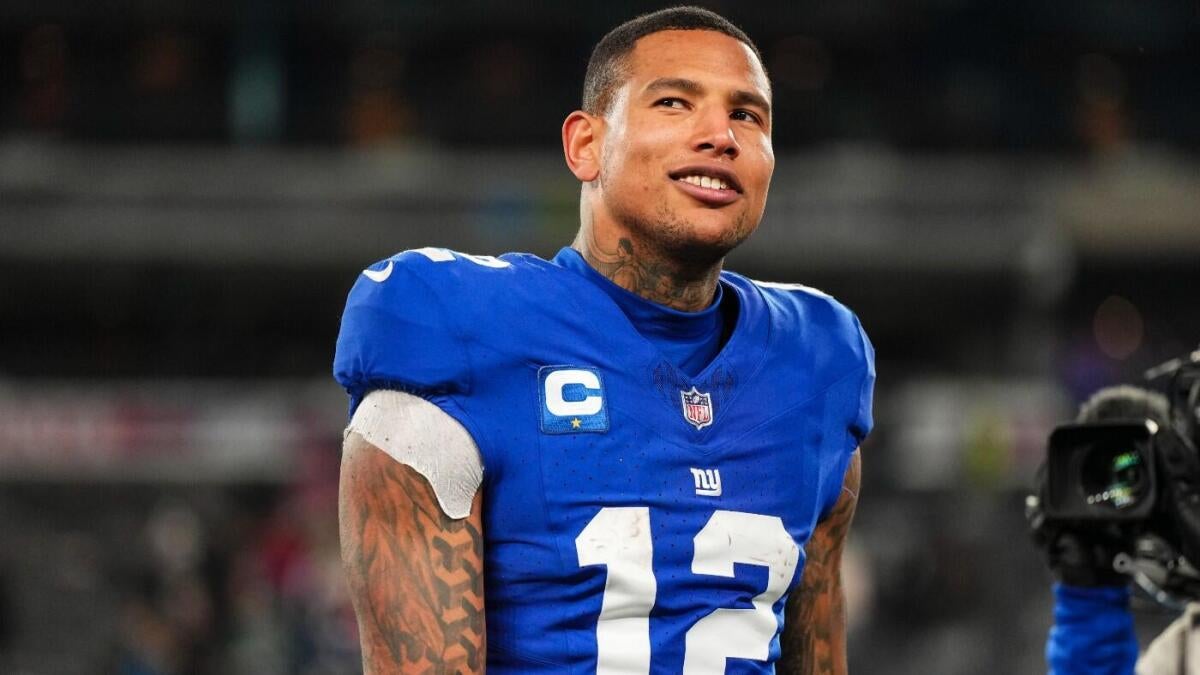The Miami Dolphins’ acquisition of tight end Darren Waller has sent shockwaves through the NFL, marking a bold strategic shift for a franchise with Super Bowl aspirations. This move, coming on the heels of Jonnu Smith’s departure, raises intriguing questions about the team’s offensive direction, Waller’s potential impact, and the broader implications for the league’s tight end landscape. As Waller transitions from retirement contemplation to South Beach, the Dolphins are banking on his ability to recapture his Pro Bowl form and elevate an already potent offense.
Waller’s journey to Miami is unconventional, to say the least. After a standout career with the Las Vegas Raiders, his production declined during a brief stint with the New York Giants, leading to retirement considerations. However, the allure of joining a high-powered Dolphins offense, coupled with the chance to compete for a championship, proved too enticing to pass up. This acquisition represents a significant gamble for Miami, as Waller’s past success doesn’t guarantee future performance, especially given his injury history and recent struggles.
The decision to trade Jonnu Smith and replace him with Waller is particularly noteworthy. Smith, acquired to bolster the tight end position, never fully lived up to expectations in Miami. His departure created an opportunity for Waller, a player with a higher ceiling but also greater uncertainty. The question remains: Is Waller a clear upgrade over Smith, or is this move a calculated risk with the potential for a higher reward? Waller’s past production suggests immense potential, but his recent struggles and injury history cannot be ignored.
Waller’s potential impact on the Dolphins’ offense could be substantial. The team’s high-octane unit, featuring Tyreek Hill and Jaylen Waddle, could reach new heights with a healthy and productive Waller. His ability to stretch the field, create mismatches, and provide a reliable target in the red zone could make Miami’s offense virtually unstoppable. Defenses will be forced to allocate more resources to contain Waller, potentially opening up opportunities for Hill and Waddle. Additionally, Waller’s presence could address the Dolphins’ struggles in the red zone, providing quarterback Tua Tagovailoa with a reliable target in scoring situations.
The New York Giants’ decision to trade Waller after just one season highlights his disappointing performance and the team’s desire to move in a different direction. The Giants received minimal compensation for Waller, underscoring his diminished value. His struggles in New York raise questions about his fit within the team’s offensive scheme, his chemistry with the quarterback, and his ability to stay healthy. Moving forward, the Giants will need to address the tight end position, whether through the draft, free agency, or existing players on the roster.
The financial implications of the Waller trade are significant. The Dolphins inherit Waller’s existing contract, which carries a substantial cap hit. This move reflects the team’s willingness to invest in proven talent in their pursuit of a Super Bowl. However, managing cap space with Waller’s contract on the books will be crucial. The Dolphins will need to consider potential contract restructures or extensions to maintain financial flexibility. Ultimately, the success of this acquisition will hinge on whether Waller’s performance justifies his salary and provides a significant return on investment.
The Waller trade occurs within the context of an evolving tight end market in the NFL. Teams are increasingly valuing versatile tight ends who can both block and catch passes. Waller’s acquisition reflects this trend, as the Dolphins seek to add another dimension to their offense. Rising stars at the tight end position, such as Travis Kelce and Mark Andrews, highlight the importance of this position in modern NFL offenses. The Dolphins are betting that Waller can contribute in a similar fashion, providing a reliable target for Tagovailoa and creating mismatches for opposing defenses.
However, the acquisition of Darren Waller is not without its challenges and risks. Waller’s history of injuries is a major concern, as his ability to stay healthy for an entire season and contribute consistently is uncertain. Additionally, integrating into the Dolphins’ offensive scheme and developing chemistry with Tagovailoa will be crucial. With Hill and Waddle already established as the team’s top receiving options, Waller’s role and target share remain to be seen. The Dolphins will need to ensure that there are enough targets to go around and that Waller’s presence doesn’t negatively impact the production of their star receivers.
Ultimately, the success of the Waller trade will be judged by whether it helps the Dolphins achieve their ultimate goal: winning a Super Bowl. While Waller alone cannot guarantee a championship, he certainly has the potential to elevate the team’s offense and make them a more formidable contender. His ability to perform under pressure and contribute in crucial moments will be vital. Additionally, Waller’s fit within the Dolphins’ locker room and his potential to become a leader and mentor for younger players will be important factors in the team’s success.
The Miami Dolphins’ acquisition of Darren Waller is a bold and unexpected move that carries both significant potential and considerable risk. Waller’s talent and experience could transform the Dolphins’ offense into an unstoppable force, but his injury history and recent struggles cannot be ignored. This trade represents a calculated gamble by the Dolphins, one that could ultimately determine their success in the upcoming season and beyond. Only time will tell if Waller can recapture his former glory and help the Dolphins reach the Super Bowl promised land.

